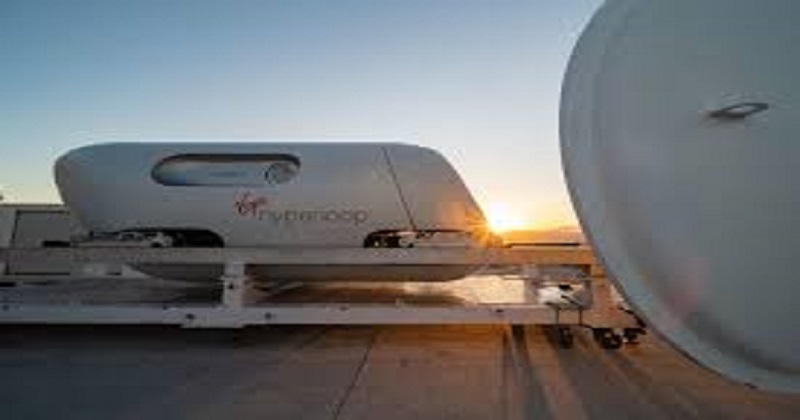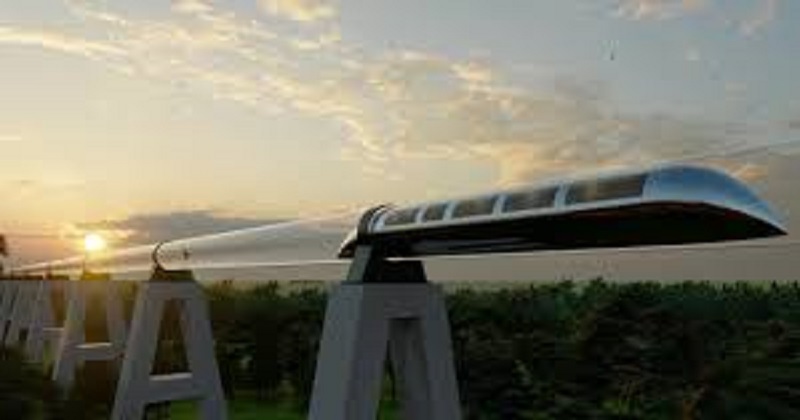
Hyperloop is a super-fast transport system that promises to transform the way we travel. It could be true. The project is being worked on by many engineers, including teams from India. How will it work? The architecture is actually quite simple. Think of it as a tube. Levitate the pod inside the tube to remove friction from the wheels. According to Rob Lloyd, CEO of Hyperloop One, in a YouTube video posted on the company’s website, it takes very little electricity to move that pod at a remarkable speed.
The ‘incredible speed’ he refers to is 1,200 kilometers per hour or 1 kilometer every three seconds. Consider the speed of India’s first bullet train proposed between Mumbai and Ahmedabad, 508 kilometers apart. It will reach a maximum speed of 350 kmph. Ever since Tesla CEO Elon Musk introduced the concept in 2013, engineers worldwide have been fascinated by the hyperloop. A Los Angeles-based company called Hyperloop One recently kicked off a global competition to deliver its vision to life. Teams were asked to submit commercial, transport, economic, and policy arguments for their city, region, or country to host the first hyperloop network.

Hyperloop One is said to have whittled down the field to 35 at the semi-final stage this January. Five of them are from India. The five routes that have made it to the semi-finals are Mumbai-Delhi, Chennai-Bengaluru, Chennai-Mumbai and Bengaluru-Thiruvanthpuram, as well as a port connector project. All 35 semifinalists have the opportunity to present their proposals at three showcase events, on February 28 in New Delhi, April 6 in Washington DC, and April 27 in London.
As part of the project, the teams are required to develop a corridor for the hyperloop, government policies, and how the hyperloop will drive economic growth in their region, says Vivek Tiwari, executive chairman, Dinclix GroundWorks. Dinclix GroundWorks’ DGWHyperloop, based in Indore, proposes a Mumbai-Delhi corridor that will go through Nashik, Indore, Kota and Jaipur. In addition, it will take 60 minutes to travel between the national capital and the commercial capital, 1,300 kilometers apart. Regarding the ticket’s price, it will be about the same as a train ticket. The website of DGWHyperloop claims this. Ticket costs are expected to range from Rs 1,700 to Rs 2,100, according to the company.

Energy-efficient and cost-effective, the technology is said to be. DGWHyperloop says solar panels will be installed on top of the tubes to keep the pods moving. Bibop Gresta, chairman of Hyperloop Transportation Technologies (HTT), is quoted as saying in the media that ‘put $1billion into hyperloop and you’ll have a faster, more efficient way to transport people’.
Is hyperloop really necessary when the bullet train already exists? There is an urgent need for all transportation technology in India – from rural transport by Sumos and Boleros to the hyperloop. Vinayak Chatterjee, Chairman, CII National Committee on Infrastructure, tells in an e-mail exchange that the market in a country of 1.3 billion is big enough to accommodate all these modes of transport.
According to Tiwari, land acquisition is a major challenge. He says government agencies and private firms are advising and helping him handle the situation. Dinesh Kumar, Divisional Railway Manager, Ambala, is enthusiastic about hyperloop. Providing there is a political will, he says, obstacles can be removed.

Post Your Comments